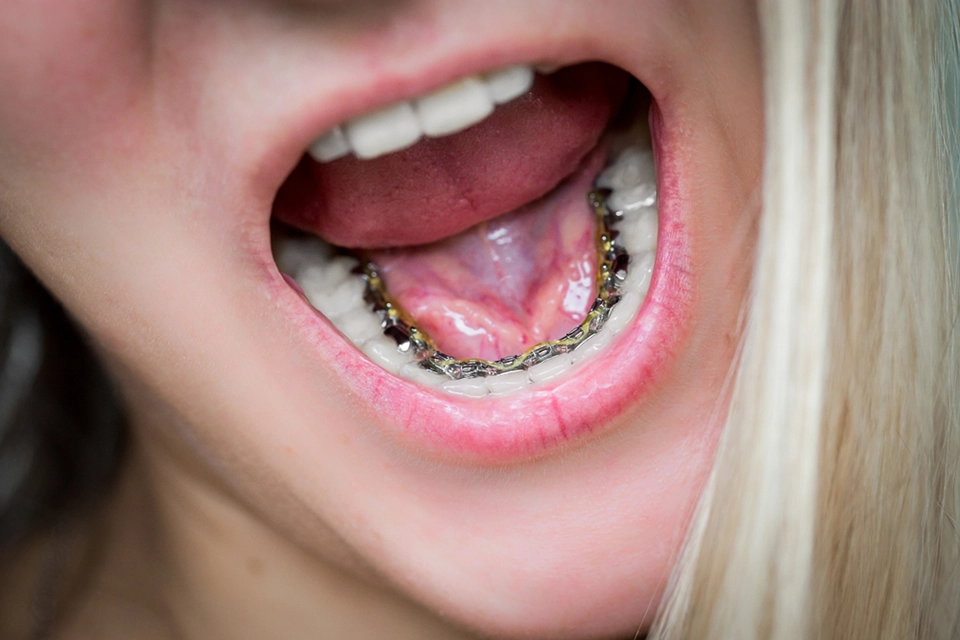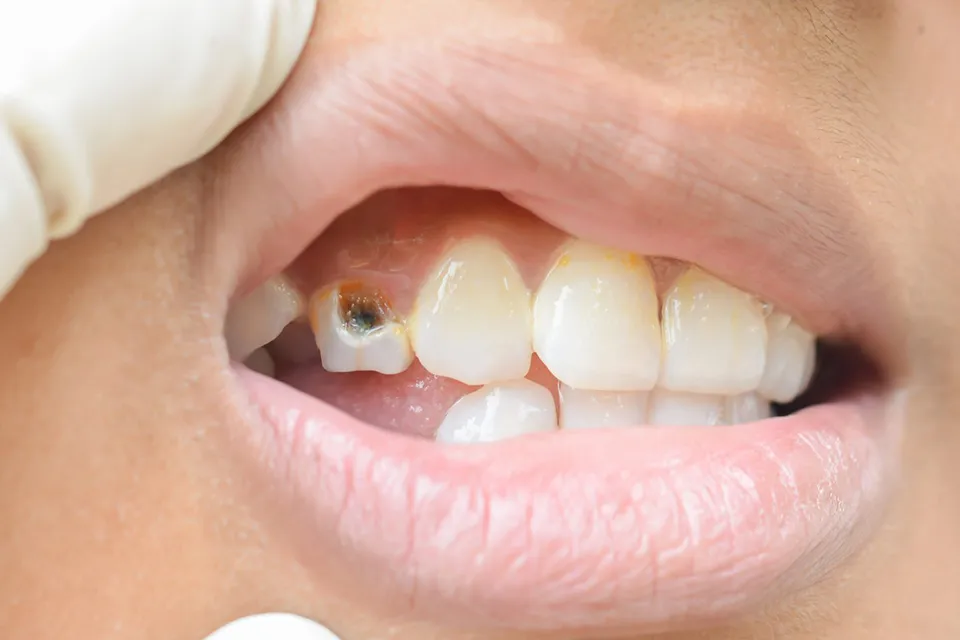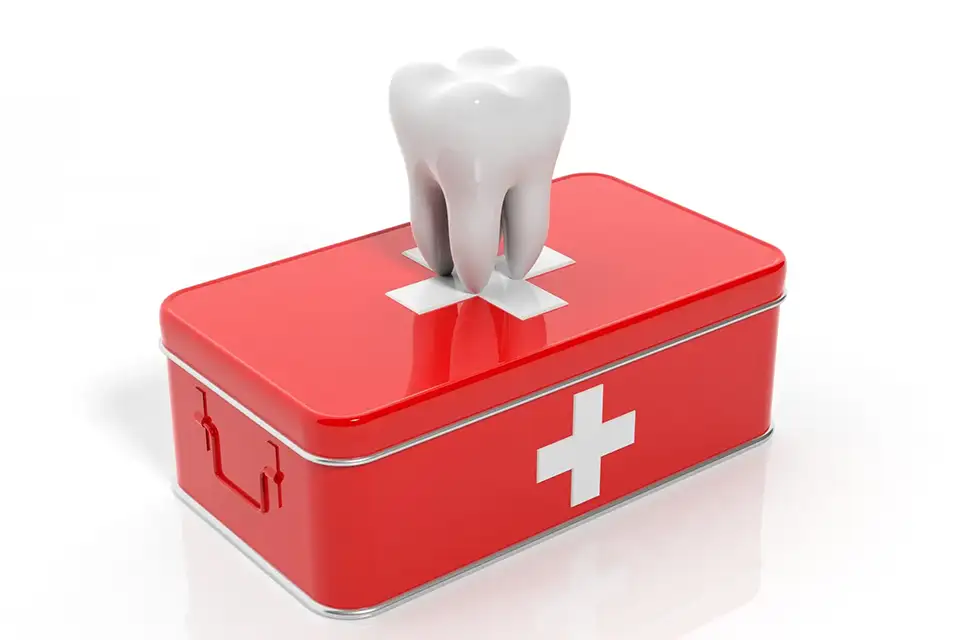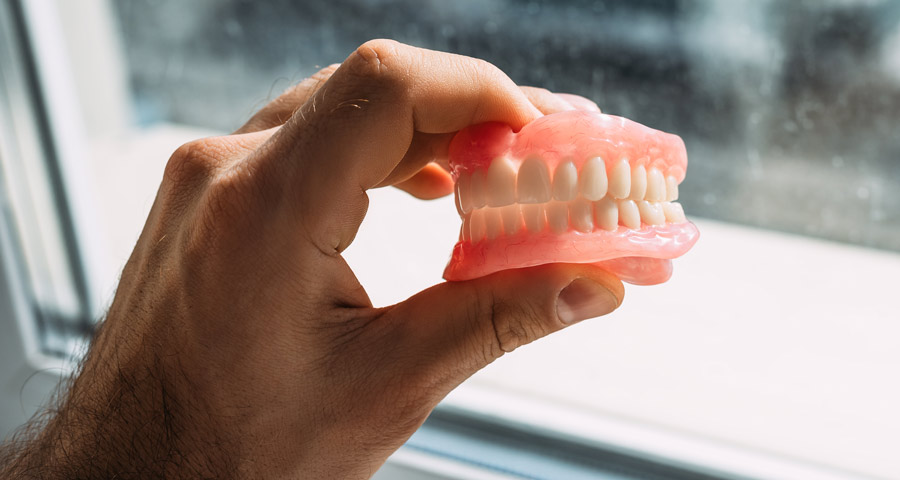The term “immediate” says it all when it comes to immediate dentures. Unlike conventional dentures, which may take a great deal of time to create after your teeth are removed, immediate dentures can replace your natural teeth directly after the removal process is complete. Also known as same day dentures, they are available as either complete and partial dentures.
The Benefits of Immediate Dentures
The biggest advantage of immediate dentures should be immediately obvious. Because the process of preparing and manufacturing conventional dentures takes a considerable amount of time, those who pursue this time-honored method of tooth replacement must cope missing teeth for an extended period of time (typically one or more months) after their extraction.
With immediate dentures, however, patients can avoid the considerable embarrassment and inconvenience that comes with living without teeth. In fact, wearers of immediate dentures need never go out in public a single time without a full set of highly functional teeth.
The clinical experts at the University of Iowa Collage (U of I) of Dentistry and Dental Clinics lists a number of additional benefits associated with immediate dentures. These benefits include…
- Improved Appearance – Because the immediate denture creation process begins while the majority of your natural teeth are still in your mouth, it enables dentists to more accurately duplicate their natural shape, arrangement, and color. Your friends may never know that your natural smile has been entirely replaced. Immediate dentures also limit any facial distortion that might occur from living with missing teeth.
- Improved Healing – Immediate dentures are inserted directly after tooth extraction, allowing them to double as a bandage that covers the trauma that oral surgery inevitably produces. As healing progresses, they protect damaged tissues and stop the flow of bleeding.
- Improved Speech – Teeth play a very important role in forming spoken words and sounds. With conventional dentures, patients must learn to talk without teeth for a considerable period of time while their dentures are being made. Then, when their dentures are finally inserted, they must re-learn those speech patterns all over again. Immediate dentures, by contrast, allow patients to establish speech patterns early and continue to speak effortlessly for the rest of their lives.
- Improved Chewing – Similar to speech patterns, chewing and eating with and without new dentures requires patients to go through some pretty significant learning curves. Why worry about learning to eat without a full set of teeth when you can begin chewing immediately with immediate dentures?
Costs Associated with Immediate Dentures
The biggest drawback of immediate dentures when compared with traditional dentures is their additional cost.
According to the independent healthcare finance website site Cost Helper Health a full set of mid-range quality dentures will run you between $1000 and $3,000. This price doesn’t include many of the costs associated with tooth extraction and other procedures/products that typically go hand in hand with denture acquisition.
The added convenience of immediate dentures comes with an added cost. Located in Houston, Texas, the denture experts at Zara Dental tell patients to expect their immediate dentures to be 15 percent to 25 percent more expensive than comparable conventional dentures.
Iowa College Dentistry and Dental Clinics points out several reasons for this cost increase, including facts such as immediate dentures
- always require greater lengths of manufacturing time.
- often require a surgical stent to aid in tissue recontouring after extraction.
- generally require more follow-up dental visits for re-fittings and other adjustments.
If you are thinking about pursuing immediate dentures but are worried about the expense, check with your existing healthcare insurer to see if they are covered under your current plan. Many forms of dental insurance or extended dental coverage will pay for most, if not all, of the costs that are associated with immediate dentures.

Other Drawbacks of Immediate Dentures
In addition to their increased cost, immediate dentures have a few physical and practical complications that patients will want to carefully consider before deciding to pursue this tooth replacement option.
With conventional dentures, you typically have time to examine and appraise the quality of your new set of false teeth before placing them in your mouth. Immediate dentures, however, do not allow patients to see exactly how their new dentures will look before a dentist actually inserts them.
The other physical disadvantages of immediate dentures involve the various processes of adjustment and re-fitting that also contribute to their increased cost. While traditional dentures are created and placed after the damage of extraction has completely healed (a process that generally takes six to eight weeks), immediate dentures are placed directly after extraction while the mouth is still severely damaged by surgery. As the healing process causes tissues to shift and change, immediate dentures may suffer from fit inaccuracies that dentists must monitor and address on an ongoing basis.
Other Options to Consider
Of course, the main alternative to immediate dentures is conventional dentures that are crafted after your teeth have been removed and your mouth has fully healed from the extraction process. Both immediate dentures and conventional dentures are removable. In other words, you can take them in and out of your mouth as needed for cleaning and comfort. While inserted, dentures (otherwise known as “false teeth”) are often secured in place with some sort of denture adhesive or bonding paste.
If you don’t want false teeth that can be inserted and removed, you can explore various tooth replacement options that are permanently affixed within your mouth through surgery. These options include….
- Permanent Dentures/Ceramic Implants – This is a great option for people who don’t want to worry about losing their dentures and want permanent false teeth that feel very much like the natural teeth that they have lost. Permanent dentures will never shift around on your gums or fall out of your mouth. Like permanent dentures, ceramic implants are designed for permanent placement within the mouth. Although they come in many forms (mini, subperiosteal, etc.), the root-form dental implant is the most common by far. Root-form dental implants involve installing a small titanium screw into the jawbone and then attaching one or more false ceramic teeth to this structure. To pursue implants, patients must have enough healthy bone material in the jaw to securely root them in place.
- Bridges – Not a viable alternative to complete dentures, bridges are certainly an option for individuals who need to replace only some of their teeth. Best for missing teeth located in the front section of the mouth, bridges require relatively healthy gums and a limited number of fillings in the remaining natural teeth that surround them.
- Crowns – If your dentist decides that your problematic teeth are ultimately salvageable, you may be able to pursue crowns as a viable option. Rather than replace the entire tooth, crowns are often employed to cover the tops of teeth that are chipped, cracked, decayed, or eroded by grinding or an improper bite pattern.
The Immediate Denture Process
In order to place immediate dentures directly after the extraction of your natural teeth, the immediate denture process must begin long before your teeth are pulled.
The first step toward immediate denture preparation involves taking impressions of your existing natural teeth and gums in order to begin creating highly accurate false teeth duplicates that can be placed immediately after tooth removal.
After your immediate dentures are in place, you will need to return to the dental office multiple times as your gum and bone tissue naturally shifts and recedes during the healing process. The overall number and frequency of these visits will vary from patient to patient.
During each visit, your dentist will closely monitor your general oral health and both the fit and the function of your immediate dentures, addressing evolving issues and concerns as they arise. Temporary linings and/or tissue conditioners are typically necessary to optimize fit, and immediate dentures may need to be adjusted or replaced several times during the healing period.
At the end of the healing process, your doctor will schedule a permanent reline or re-fitting appointment that will ensure the proper fit and full functionality of your immediate dentures for years to come.
How to Care for Immediate Dentures
During the extensive tooth extraction healing process, it is extremely important to follow the instructions of your dentist strictly and faithfully. Although these instructions will vary according to the specific health conditions and needs of each patient, the process of self-care for immediate dentures generally conforms to the following guidelines during the healing process:
- Leave your immediate dentures in place until the morning after your extraction procedure.
- Remove your immediate dentures only after thoroughly washing your hands.
- Use both hands to remove your immediate dentures while standing over a sink or counter.
- To clean your immediate dentures, rinse them carefully under cold water and then scrub them under this flowing water using a denture brush.
- Take care to thoroughly scrub both the inside and the outside of your immediate dentures.
- Never use soap, toothpaste, or over-the-counter denture cleaners on your immediate dentures during the initial stages of the healing process.
- To facilitate the healing process, gently rinse your mouth in saltwater (one teaspoon of salt dissolved in 8 ounces of warm water).
- After gently spitting out the saltwater, place the denture back in your mouth and clean any remaining natural teeth with a toothbrush as normal.
- Four days after the extraction procedure, you can begin taking your immediate dentures out before you go to sleep at night, scrubbing them and rinsing your mouth with saltwater as prescribed above.
- Place your immediate dentures in a container for overnight storage and submerge them in clean, cold water.
- In the morning, rinse your immediate dentures in fresh water before placing them back in your mouth.
- Continue rinsing your mouth in warm saltwater each day for at least 7 to 10 days post extraction.
- Take all dentist-prescribed medications on schedule throughout the healing process and eat only soft foods until you can comfortably begin introducing harder and chewier fare.
- Your dentist can help you determine when you can begin chewing more challenging foods with your immediate dentures.
- Your dentist will also tell you when you can start using toothpaste or other denture cleaners on your immediate dentures (typically about a week after the extraction procedure).
When the healing process is complete, immediate denture wearers can begin brushing and flossing their false and remaining natural teeth just as they always have. You must remove plaque from both natural and false teeth on a daily basis in order to maintain ongoing oral health. Regular checkups and cleaning appointments at your dentist are also an absolute must.
Like traditional dentures, immediate dentures can be worn both day and night, but experts, such as those at the American College of Prosthodontists, recommend removing dentures at night in order to give your gum and bone tissue an opportunity to recover from the pressure of denture wear over the course of the day.
If you remove your dentures at night, they should always be stored in a container and completely covered in clean, cold water. In any event, dentures should be removed at least briefly each night for a thorough cleaning.
Interested in Learning More about Immediate Dentures?
If you live in or around Houston, Texas and you want more information about immediate dentures, feel free to contact Zara Dental today.
Skilled and knowledgeable professionals are on hand to answer any questions that you might have.
You can also schedule a free consultation at the Zara offices. That’s right, unlike other dental offices that charge for all initial and subsequent visits, Zara offers consultations at absolutely no cost to you.
A full-service dentist office, Zara provides comprehensive general dentistry care as well as implants, orthodontics, and cosmetic procedures. In addition to its expertise in immediate dentures, Zara offers quality affordable dentures of all types and styles.







